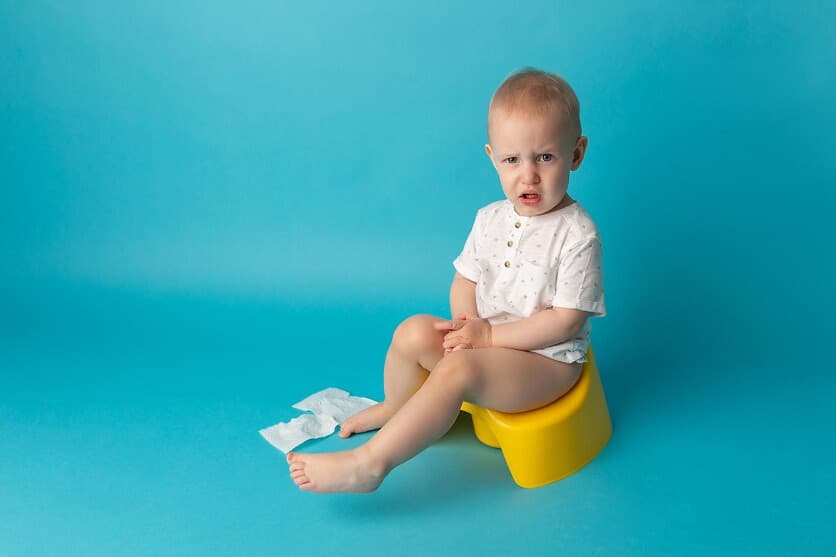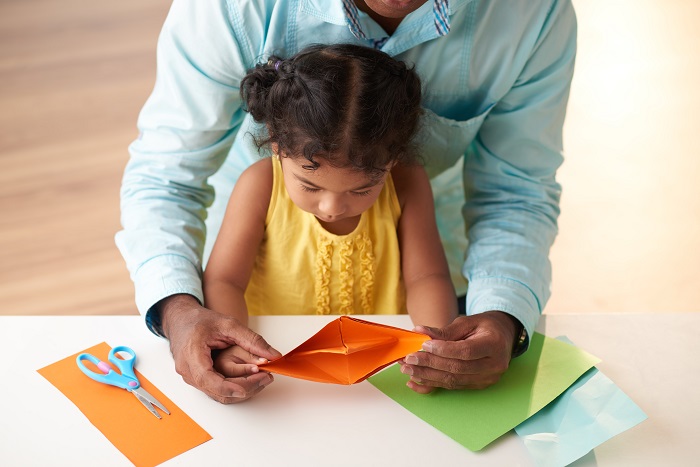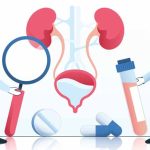If your child is used to holding their urine for long hours, the mere thought of starting preschool can be worrying. You might wonder, what if they have an accident in class? It’s natural to feel concerned.
In this article, we will discuss reasons why your child is not urinating for 12 hours or longer periods and offer guidance on how to manage this situation.
How Often Should a Toddler Urinate in a Day?
The frequency of urination in toddlers can vary depending on factors such as age, fluid intake, and individual differences. A toddler, on average, might urinate about 6-8 times a day. However, some toddlers may urinate more or less frequently.
Understanding your toddler’s urination pattern is essential for maintaining proper hydration, ruling out the chances of urinary tract infection, and detecting other medical conditions early.
Signs to Pick up:
Kids might be incapable of communicating their pain and discomforts, but they do express themselves with some signs, and noticing these can help you greatly avoid further hassles.
If your child is playful and happy, there is little to worry about. On the other hand, if your toddler refuses to eat and drink or does not pass urine for more than 12 hours, you need to consult a doctor. Additionally, if you think there is some obstruction in the urine flow, you immediately need to go to the ER and see a doctor. These signs shouldn’t be avoided as they may lead to serious problems if left unaddressed.
5 Causes of Toddler Not Peeing and How to Prevent Them
- Dehydration
- Dry mouth
- Fewer wet diapers
- Fussiness
- Lethargy
- Sunken eyes
- Bladder Dysfunction
- Urinary Tract Infection (UTI)
- Side Effects of Medications
- Stress and Anxiety
Dehydration in babies and toddlers occurs when their bodies lose more fluids than they consume, leading to an imbalance that affects their overall health. Babies and toddlers are more susceptible to dehydration due to their smaller body size and higher turnover of fluids. Signs of dehydration may include-
It is crucial to monitor their fluid intake, frequently offer breast milk or formula, and seek medical attention if the baby is not passing urine for 12 hours or more.
Bladder dysfunction could be the key reason if a toddler hasn’t peed all day. There are various causes of bladder dysfunction, oliguria, a medical term that refers to low urine output, being one of them. Generally, oliguria in infants can be due to constipation, holding the pee for a long time, or particles of poop entering the urinary tract when they soil their diaper. To address the issue of your toddler not peeing, give your child small sips of water until it becomes a habit. Also, look for symptoms like crying during urination or even refusing to go to the toilet due to fear of pain.
Urinary Tract Infection (UTI) is the main cause of a child not urinating for 24 hours. Bacterial entry into the urethra can cause infections, leading to pain or discomfort during urination. Recognising signs like crying while passing urine or frequent urination and promptly consulting a doctor can help diagnose and treat UTIs effectively.
Sometimes, medications can also lead to reduced urination. Therefore, if your child is not urinating for 12 hours but drinking water, it could be due to side effects of medications. Antihistamines and decongestants can have an impact on the production of urine as a side effect. You must check if your toddler has been given any new medication recently and check with your doctor for possible side effects.
What to do if the toddler is not peeing? Urine problems in kids can occur due to stress and anxiety. Parents must check for major changes or shifts in their child’s life. Children also tend to hold their urine if any particular experience has triggered a fear of pee, for example, pain. Alternatively, reduced urine output can also be a sign that the toddler is trying bladder control, but there is no particular age at which a toddler can develop this habit.
Some other causes of your baby not passing urine for 12 hours or more could be reduced food intake, fever and other signs of illness.
Also Read – Toddler not peeing but not dehydrated
Understanding Dehydration and How to Deal with It
Dehydration can impact toddlers in unexpected ways, including reduced urination. While decreased urination is an important sign, understanding the broader symptoms, causes, and treatment options is essential for parents to address this issue effectively.
Toddlers may not always communicate their discomfort. Therefore, parents must spot common signs of dehydration. Here are some symptoms of dehydration:
- Decreased urination: Fewer wet diapers or no urination for over three hours.
- Dry or cracked lips and mouth: A telltale sign of insufficient hydration.
- Sunken eyes: This can indicate moderate to severe dehydration.
- Dry or sticky mucus: Visible on the tongue or mouth lining.
- Rapid breathing or fast heart rate: The body compensates for fluid loss.
- Lethargy or sleepiness: A lack of energy, sometimes accompanied by fussiness.
- Reduced activity: Toddlers might appear less playful or engaged than usual.
Recognising these signs can prevent complications and ensure timely intervention.
Preventing Dehydration in Toddlers
The best way to protect toddlers from dehydration is through prevention. Here are some simple strategies:
- Encourage regular hydration: Offer water throughout the day, especially in hot weather or during illness. Always avoid sugary drinks, as they can worsen dehydration.
- Respond to early signs: Use ORS at the first sign of vomiting, diarrhoea, or other dehydration symptoms to replenish lost fluids.
- Adjust for weather: Limit time spent outdoors in hot and humid weather. Dress toddlers in breathable fabrics and provide shade.
- Monitor food and drink: Avoid salty or sugary foods that may disrupt fluid balance. Incorporate hydrating foods like watermelon, cucumber, and soups into their diet.
Toddler Not Peeing But Drinking Water
Suppose a toddler has consumed enough water but is not urinating. In that case, the child must be facing problems such as dehydration, urinary tract infection (UTI), or a block in the urinary tract. Dehydration could be due to loss of fluids due to sweating or diarrhoea. Further, a UTI can also trigger pain and a burning sensation in the child that could make it reluctant to urinate. Moreover, a blocked urinary tract could prevent the child from passing urine. Therefore, it is essential to seek immediate medical assistance to avoid further complications and address the issue immediately.
Conclusion
In conclusion, if your child is not urinating for 12 hours, it’s essential to take notice, as this could signal a health issue. Common causes include dehydration, urinary tract blockages, or underlying medical conditions. Parents should seek medical advice promptly to ensure early detection and treatment, which can significantly improve their baby’s health. To learn more about toddlers’ not urinating or related concerns, check out our blog: Addressing Unusual Urine Smell in Babies: Causes and Remedies.
For more engaging and informative articles on your child’s growth, health, and development, visit EuroKids Blogs. Explore EuroKids preschools to ensure your little one gets the perfect foundation for a bright educational journey!
Frequently Asked Questions (FAQs)
- Why is my kid not urinating?
- How can dehydration affect a toddler’s urination?
- What signs indicate a urinary tract infection in toddlers?
- When should parents be concerned about their toddler not urinating?
- What steps can parents take if their toddler is not urinating?
Common causes for your kid not urinating include dehydration, urinary tract infections, and constipation, which can all affect a toddler’s urination frequency.
Dehydration reduces the amount of urine produced, leading to fewer wet diapers or trips to the potty.
Signs include fever, fussiness, foul-smelling urine, and discomfort during urination.
Parents should be concerned if their toddler hasn’t urinated for 6-8 hours, shows signs of dehydration, or has a fever.
Ensure the child is drinking enough fluids, monitor for signs of illness, and consult a paediatrician if the issue persists.
















